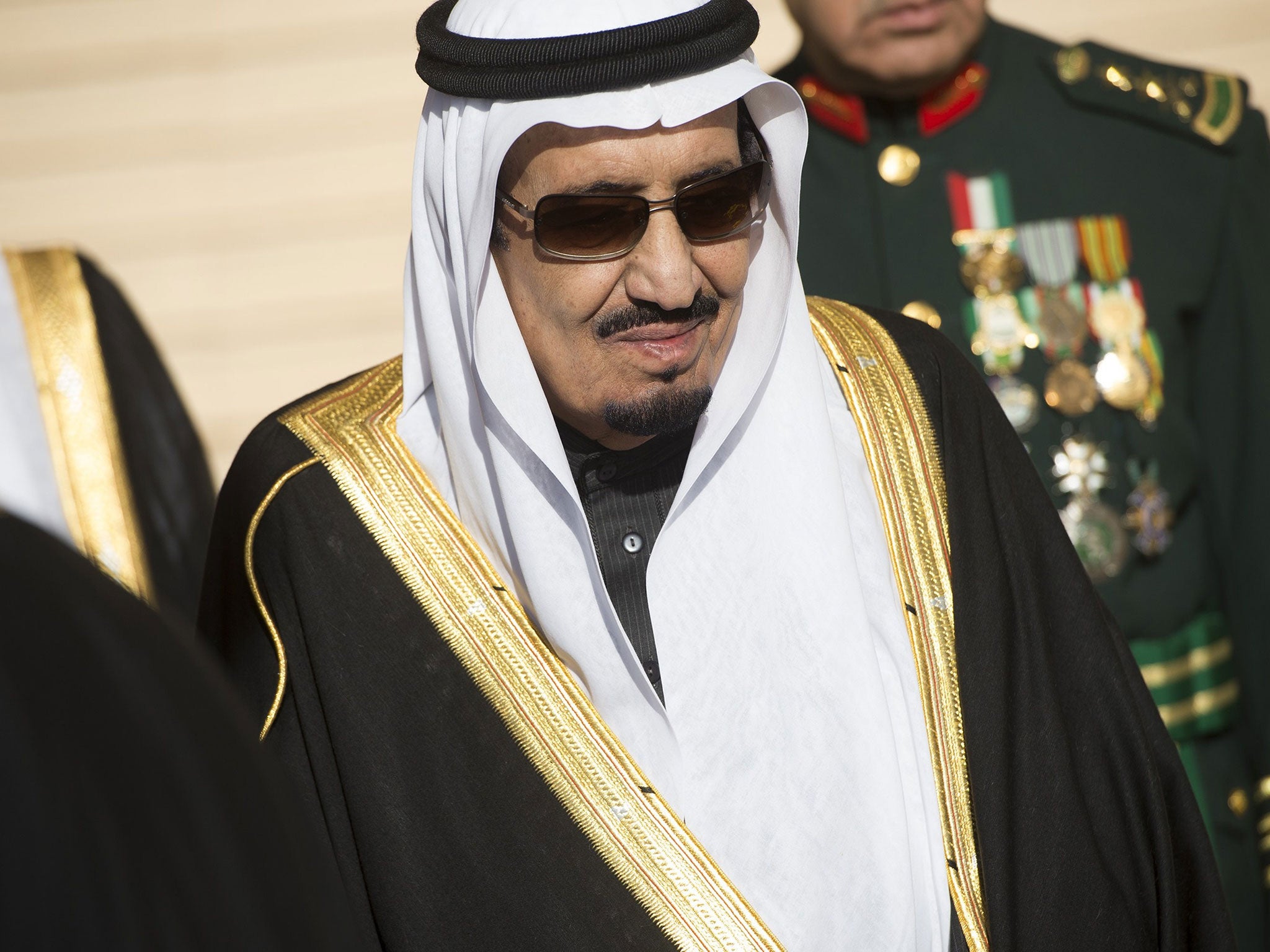Saudi Arabia's King Salman announces major cabinet reshuffle and new heirs to throne
Kingdom gets first new foreign minister for 40 years as part of far-reaching changes that aim to consolidate the new king's power

Saudi Arabia’s new king has named his nephew as the country’s new crown prince, demoting his brother from the role, as part of the country’s biggest cabinet reshuffle in years.
King Salman elevated his own son to the position of deputy crown prince, dictating a new hierarchy among the heirs to the throne in what has been interpreted as an attempt to consolidate his authority three months into his reign.
The early days of the new king’s reign have been marked by a host of controversial decisions, from the move to wage war on the Iran-allied Houthi rebels in Yemen from late March to a marked increase in the number of death sentences carried out in the kingdom.
Also on Wednesday, the official SPA news agency announced that the king was decreeing a one-month salary bonus for all military and security personnel in “appreciation of their efforts” – and perhaps to secure their loyalty.
Gone from King Salman’s cabinet are a number of longstanding senior officials who were loyal to the former King Abdullah. The most senior was Prince Saud al-Faisal, who had served as the country’s foreign minister for 40 years.
Now 75 years old, Al-Faisal has received medical treatment abroad and King Salman’s decree cited “health conditions” as the reason for his retirement.
The new crown prince, Prince Mohammed bin Nayef, is the first of his generation to be thrust into the highest echelons of government. At 55, he has become known as a hardline counter-terror czar and survived several assassination attempts – including one by al-Qaeda in 2009.
Bin Nayef will continue to act as interior minister but will also play the role of deputy prime minister as crown prince. His age means he is likely to be a hugely important role for decades to come in Saudi Arabia, and makes him the most likely to be the next king.
The most senior woman in government, Nora al-Fayez, was sacked from her post as deputy education minister for girls, the decree said. Shunned by ultraconservatives, she was strongly pushing to try to get physical education on the curriculum for girls in Saudi public schools.
Prince Mohammed bin Salman, who is overseeing the Saudi air strikes in Yemen, will remain defence minister as he takes on the title of deputy crown prince. He also heads a massive council that oversees all economic and development issues.
Royal bonuses at times of political change or tension have a long history in Saudi Arabia. To mark his accession in January, King Salman ordered the payment of two months' extra salary and pensions to government employees and retirees. Lavish social welfare spending was announced during the Arab Spring uprisings elsewhere in the region in 2011.
And though King Salman decreed a promotion for his son on Wednesday, the prince is under growing pressure to produce results in the fractious Yemen crisis.
King Abdullah dead: Reaction from around the world
Show all 8Despite weeks of air strikes and fighting between rival factions, the frontlines in the country’s civil war have barely moved.
The Houthis are desperately trying to hold onto the stalemate, aware that international support for the Saudi-led coalition will fade the longer the conflict goes on.
Subscribe to Independent Premium to bookmark this article
Want to bookmark your favourite articles and stories to read or reference later? Start your Independent Premium subscription today.

Join our commenting forum
Join thought-provoking conversations, follow other Independent readers and see their replies